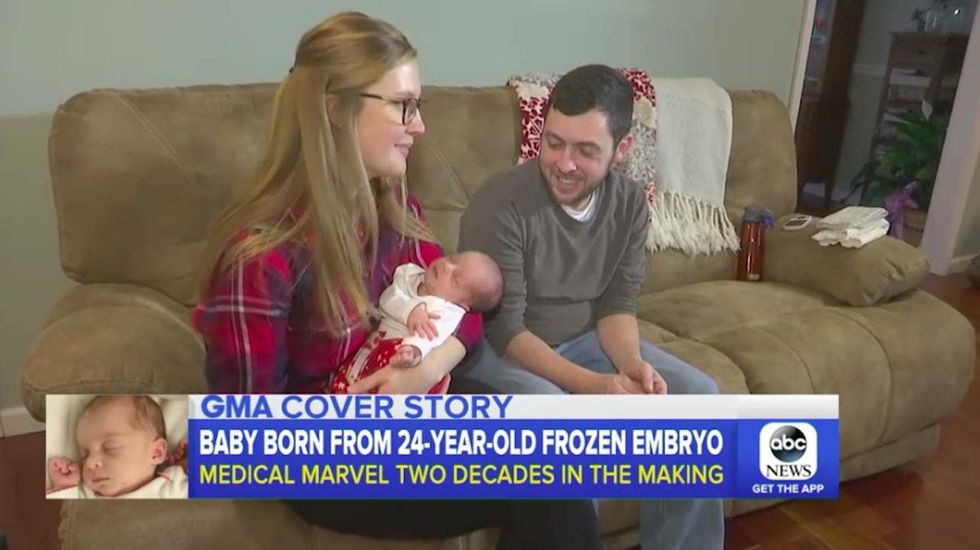
Benjamin and Tina Gibson welcomed their daughter Emma Wren Gibson on Nov. 25. The couple adopted Emma as an embryo after she was frozen for more than 24 years. (Image source: ABC News screenshot)

A 26-year-old Tennessee woman recently gave birth to a baby girl born after the child was frozen as an embryo for more than 24 years, according to USA Today.
Benjamin and Tina Gibson welcomed their daughter Emma Wren Gibson on Nov. 25, USA Today reported. She weighed in at 6 pounds, 8 ounces, and 20 inches long,
Tina told ABC News that she and her husband turned to embryo adoption earlier this year after struggling to conceive.
The couple visited the National Embryo Donation Center — a faith-based nonprofit in Knoxville, Tennessee, that facilitates embryo donations after couples complete IVF treatments. According to USA Today, couples with frozen embryos they don’t intend to attempt to carry to term may donate those embryos to medical research, thaw them and allow them to die, or keep them frozen indefinitely. NEDC encourages couples to donate those embryos to infertile couples instead.
Tina became pregnant from a frozen embryo transfer in March at age 25.
Tina, now 26, told ABC News that they later found out their daughter’s embryo had been frozen on Oct. 14, 1992 — just over a year after Tina herself was born.
“If this embryo was born when it was supposed to have been, we could have been best friends,” Tina told ABC News.
Tina said she never thought she’d be able to “have a pregnancy, to have a baby,” and called Emma “a sweet miracle.”
According to USA Today, Emma is believed to be the oldest frozen embryo to be born.
Benjamin Gibson said in a statement from NEDC that Emma “looks pretty perfect to have been frozen all those years ago.”
Dr. Jeffrey Keenan, an obstetrician-gynecologist affiliated with the University of Tennessee Medical Center, said in a statement provided to USA Today, "We hope this story is a clarion call to all couples who have embryos in long-term storage to consider this life-affirming option for their embryos."